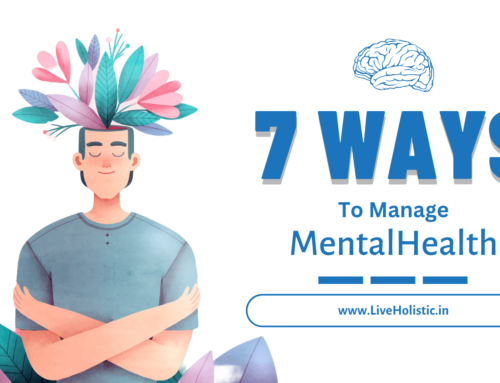Eating Habits to Improve Health
“What we eat is what we become”
Everyone seeks good health. And food is the indispensable source. Everyone has a strong desire to maintain holistic health. Then why do we fall sick very often? The cause lies in our disarrayed lifestyle and our bad eating habits. The effect of food on the body is comprehensive. Be it physical health or mental well-being, both are intrinsically linked with food and keeps taking up and down swings depending on changes in it. It is a matter of common experience. Bad and irregular dietary habits make the body sick and the mind restless.
If we were to enumerate the ill-effects of rich, pungent, spicy and fried food, we will have to list practically all the diseases, because all of them have a direct or indirect connection with food. The fashionable fast foods, packed food or junk food of today also fall in the same category. This new style of eating, widely prevalent these days, has given many a body- blow to the quality of human life.
Food is not the culprit; it is a basic necessity of life. Everybody knows this, but very few people have an idea of what to eat when to eat, and how to eat. Let us contemplate on the advice of Param Pujya Gurudev Pandit Shriram Sharma Acharya in this regard.
“What to eat?”
Let’s first take the “what to eat?” aspect. The right answer to this question is that we should eat only what provides nourishment to the body. It is important to remember that we eat to live and do not live to eat. So, if the right kind of food is to be selected out of a long list of eatables, we will have to give preference to only those items that have nutritional value and are beneficial for health. Such articles can very easily be identified. Everybody is aware, for example, of the value of fresh fruits, vegetables, pulses, cereals etc.
Many cooking ingredients like pungent spices, appetizers, pickles etc. lack any nutritive value and are manifestly harmful to health; and so are the processes of frying, stewing etc. These render even healthy food useless and deleterious. Materials inimical to health are found not only in the kitchen but also outside; e. g. liquor and intoxicants of various kinds, betel, tobacco, zarda, gutka and so many other such things have acquired the status of food supplements and are used in a routine way. The situation has become so alarming that even the food habits of the elite of society make one wonder why these educated and well- informed persons have lost their sense of wise discrimination. There are some exceptions, of course, in this class but their number is negligible.
“When to eat”
Now, “when to eat”? Again, the answer is only one viz. twice a day at the most, and that too, when the appetite has built up sufficiently. Eating randomly, or taking frequent snacks and breakfast, in addition to regular meals, is going to do no good. Dietary habits, these days, have so much deteriorated that biologists and psychologists have made this matter a subject of their research. They classify hunger in different types, for example,
- Strong craving to eat at the sight of others’ eating
- Frequent urge to eat during moments of tension
- Fixed-time-appetite in accordance with the biological clock, etc.
The experts consider the former two types wrong and only the third type right.
“How to eat”
Now having known that one should eat only when there is real appetite, there follows the next question “how to eat”? The answer is that food should be taken in a quiet and restful manner, with the humble remembrance of God as His Prasada (grace). If food is seen as God’s Prasad, even the simple ‘chapati’ (unleavened bread) proves nourishing. On the contrary, sweetmeats, multi-course dishes and dry fruits, if taken hurriedly and in a fretful mood, impair health and produce ailments. The right food taken in the right manner is the key to sound health.
Regular physical exercise also plays an important role in the maintenance of good health. Therefore it should be made an essential part of our daily routine. It keeps our body flexible and agile, keeps our heart fit, bones healthy, and maintains lung capacity; the digestion is also kept strong. Walking, jogging, Yoga asanas, pranayama, and other exercises are most suitable for this purpose. At the same time, we should ensure that all this does not result in excessive tiredness in our body. On feeling tiredness yoganidra, shavasan etc. can be resorted to. Therefore, let’s resolve to eat the right food at the right time and exercise regularly to keep the body fit and healthy.
Good healthy food list:
- https://www.healthline.com/nutrition/foods-vegans-eat#section9
- https://www.mayoclinic.org/healthy-lifestyle/nutrition-and-healthy-eating/in-depth/vegetarian-diet/art-20046446
Reference:







Leave A Comment